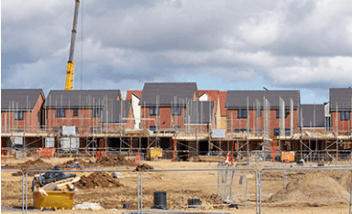The property investment vs. traditional pension debate has been ranging almost as long as the famous chicken and egg controversy. For individuals involved in the property industry, it is quite surprising that this debate is still continuing, especially when many experts believe that property investments will always be the resounding winner each time.
With the United Kingdom’s population living longer, different investment techniques can have a significant change in your life. This is the main reason you should try to understand whether property investment is better than traditional pensions or not.
The risk
Part of the frustration and confusion lies in the fact that despite what most people say, people nowadays know that pensions can underperform compared to property investments. Pension funds still charge fees each year even if they do not perform well.
Much of what they read about pensions in magazines, newspapers or see on the evening news is negative in terms of pension fund performance. While there may be nothing negative affecting them personally, negative stories about pension underperformance can easily scare them.
On the other hand, there are many success stories about property investments. People have read these stories for decades, and this has created a positive view of this type of investment. Indeed, they feel that they can trust brick and mortar because they can see and touch a physical manifestation of their investment efforts.
This feels more solid than just a number (amount of money) on a bank account statement. Besides, the fundamental lack of trustworthiness in the financial industry makes people begin to suspect that just because they cannot hold their money in hand or see the ‘ heap’ where it is kept at any moment, their pensions could be destroyed ‘by financial service providers such as banks.’
Property investments could offer more than pensions. But the increased taxes for property owners and landlords over recent years mean that you must factor it in and ensure that you can afford the obligation. If you can, then, you will start getting a monthly net income from your tenants. You no longer need to wait until retirement to start enjoying the returns.
Despite the current political uncertainty across the United Kingdom regarding the property market, there is a good chance that property prices will rise in the future, resulting in better and long-term gains.
According to experts, the average pension pot in the United Kingdom stands at £50,000. This annuity will pay you about £200 a month if you retire at a normal age, and this amount is unlikely to be enough for most people. Property investments present you with an opportunity to make income and benefit from capital growth.
However, being a landlord is not an easy task and you need to choose your tenants wisely. Sometimes, your property may stay empty whilst you look for new tenants. Note that these are normal challenges associated with property investments. Understanding these risks and preparing for them will ensure that your property is occupied, and you have a reliable source of income during your retirement.
Is property investment the best option?
The answer to this question depends on whether you live in the property or you choose to let out. Owning a property outright means that you won’t be paying rent by the time you retire. However, you may have to move too begin realising any capital benefits. Besides, the past 30 years have been lucrative for individuals who chose property investments. Between 1987 and 2018, the average price of a home in the United Kingdom has increased fourfold.
Though buy-to-let investors appear to be taxed heavily on the income from their investments, those who have been in the market for years are now sitting on substantial gains compared to their peers who decided to invest in pensions. According to David Miles, an economist at Imperial College “under plausible assumptions, property prices might keep on rising faster than wages for many decades.” That means regardless of the risks associated with property investments, they are always likely to perform better compared to pensions.
So, pension or property?
The British have an outstanding love affair with the idea of owning properties as tangible wealth. Indeed, owning a second property is always regarded by many people as a long-term savings fund and this is more preferred to pension investing.
Choosing to invest in property or a pension isn’t as easy as you think. It isn’t necessarily a case of one investment being the best. Both are investment opportunities and each of them has both benefits and downsides. Thus, what’s right for you will majorly depend on how comfortable you may be with the risks associated with pensions or property investment.
Shojin Property Partners is the only property investment company that offers a range of opportunities. There are no management fees to invest but rather we co-invest our money alongside yours on every investment. Visit Our Co-investment model page to find out how we can help you on your investment journey or follow us on social media to get the latest news and tips: Facebook, Twitter, YouTube and LinkedIn.




















